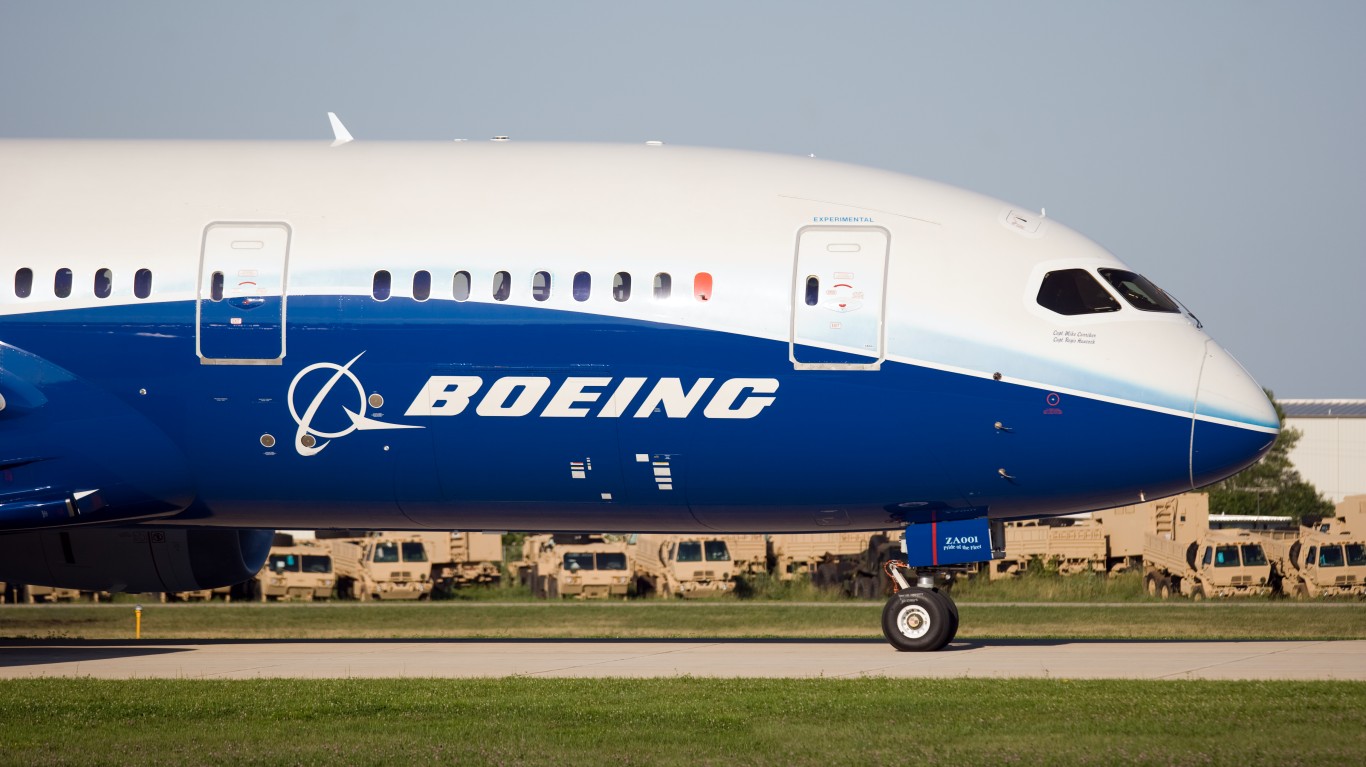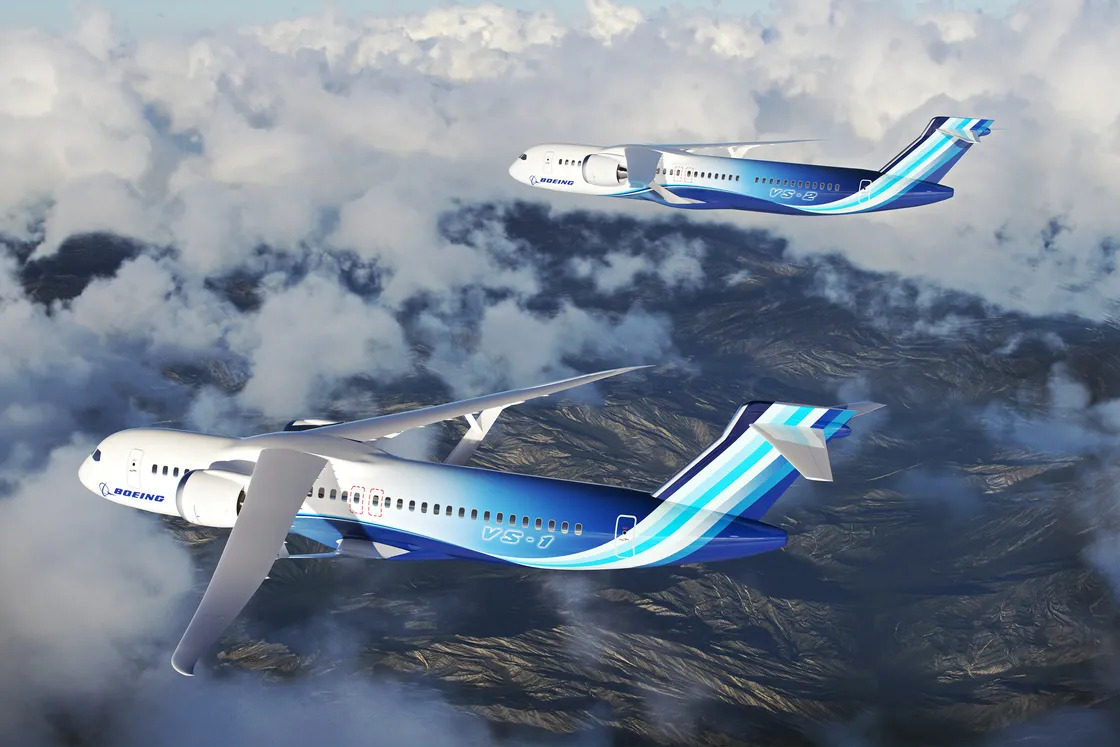
After a pandemic-induced four-year absence, the Paris Air Show is set to begin Monday, June 19, at Le Bourget airport, the landing site of Charles Lindbergh’s 1927 trans-Atlantic flight. It is normally a biannual event, but the pause has not ginned up a lot of high hopes for this year’s show.
Neither the Boeing Co. (NYSE: BA) nor Airbus will be announcing any new aircraft. Boeing will have a flying display of its largest 737 Max airplane, the 737-10, and the new 777-9 dual-aisle passenger jet that can accommodate up to 426 people on flights of up to 8,383 miles. Boeing’s 777X program, which includes the 384-seat 777-8, was launched in 2013. First deliveries of an order from Qatar Airlines for 34 of the 777-8s are now scheduled for early 2027. Last year, Boeing delayed first delivery of the 777-9 until 2025. (These are America’s 25 dying industries.)
Boeing also will be showing off its new electric vertical take-off and landing (eVTOL), the Wisk Aero, an all-electric, self-flying air taxi. Airbus is expected to show its EcoPulse hybrid-electric plane, and other makers will be displaying (but not flying) electric aircraft.
What will the air show be all about then? According to industry news site Leeham News and Analysis, orders. Outside of China and Russia, only Brazil’s Embraer and ATR, a joint venture between Airbus and defense contractor Leonardo based in Toulouse, are building commercial jets, and neither has any new planes to announce.
Airbus has denied that a new stretched A220, the A220-500, will be shown this year, and the company has had little else to say about future aircraft. Airbus is waiting for Boeing to announce its plans, and all Boeing has had to say is that it will not be introducing a new aircraft until the middle of the next decade. Which player will make the first move?
Long lead times are a function of the complexity of designing and manufacturing a new airplane. That is more complicated now because of the emphasis on cutting aircraft emissions that currently account for about 4% of global carbon emissions and could be one of the faster-growing sources of emissions as demand for air travel increases.
Airbus is working on a hydrogen-powered turboprop that would carry around 100 passengers while Boeing has a contract with NASA to develop a high-wing, truss-braced (TBW) airplane using an open fan engine that cuts fuel burn by up to 30%. Neither aircraft is likely to be launched until 2035 and deliveries will take longer.
Aircraft makers remain bedeviled by parts shortages and a variety of supply chain constraints that have limited production to the point where airplane builders cannot keep up with demand. Boeing delivered 130 commercial jets in the first quarter of this year, just three more than Airbus delivered. For the year to date, Boeing has delivered 206 commercial jets, while Airbus has delivered 244.
New order announcements from Boeing, Airbus, Embraer and ATR look to be the most exciting thing about this year’s Paris Air Show. Sad, but true.
Want to Retire Early? Start Here (Sponsor)
Want retirement to come a few years earlier than you’d planned? Or are you ready to retire now, but want an extra set of eyes on your finances?
Now you can speak with up to 3 financial experts in your area for FREE. By simply clicking here you can begin to match with financial professionals who can help you build your plan to retire early. And the best part? The first conversation with them is free.
Click here to match with up to 3 financial pros who would be excited to help you make financial decisions.
Thank you for reading! Have some feedback for us?
Contact the 24/7 Wall St. editorial team.
